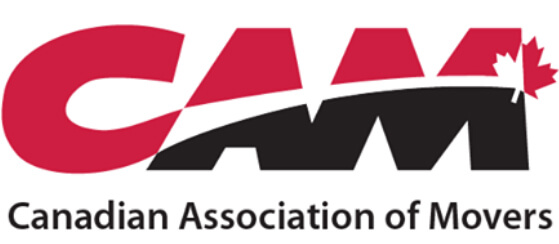Here you will find questions and detailed responses about a broad range of household goods moving topics.
And some quick answers to common FAQs are below:
Q. Is a virtual survey a legitimate way for a mover to prepare an estimate, or should I insist that an in-person survey be done?
A. The COVID-19 pandemic transformed the moving industry by making traditional in-home estimates challenging due to social distancing and health concerns. These visits required significant scheduling, travel time, and labor, increasing costs and risks for both customers and moving companies.
Virtual estimates, conducted via video calls, became a safer, faster, and more cost-effective alternative. Customers can now walk through their space remotely and receive instant quotes, eliminating wait times and reducing operational expenses. This technology is now widely adopted as a key part of the moving process.
Q. What defines a local move vs a long-distance move?
A. Provincial regulations do not specifically define a distance at which a move is considered "long distance" rather than "local". The regulations primarily focus on the requirements for contracts of carriage and uniform conditions for transporting goods, and do not establish a specific distance threshold for long-distance moves. In practice, the definition of a long-distance move can vary among moving companies. Some common industry standards include:
1. Moves beyond a 100-mile (approximately 160 km) radius.
2. Moves over 250 kilometers (about 150 miles).
3. Moves more than 400 miles (approximately 640 km).
It's important to note that these distances are not legally defined in provincial acts or their regulations. Moving companies may have their own criteria for distinguishing between local and long-distance moves, which can affect pricing and services offered.
Q. What can change the price of my move?
A. Movers are allowed to change price if any circumstances change that was not written in the original estimate. Moving includes normal delivery with one-time placement of furniture. Additional charges may be incurred if unanticipated problems arise during your move, especially if known problems were not written on your estimate, such as hoisting or flights of stairs.
These are some of the common reasons that cause increased cost:
- You did not complete your packing, or added packing that’s not on the estimate.
- Your destination involves an elevator, long carry or flights of stairs.
- You have added or changed items to be moved, changed dates or add an extra stop.
- Rearranging furniture or re-stacking items in a storage area, basement, attic or garage.
- Delays beyond the mover’s control; such as waiting time for your closing, or traffic jams.
Q. How will I be charged for packing?
A. Packing charges are based on the number of boxes packed by the mover. Added packing will change your moving cost if you did not get everything packed. Movers will not move loose items, they will pack them in boxes and charge you for the packing. To get an accurate estimate it is necessary to have a concise list of items to be packed by the mover at the time of your estimate.
Q. How do I pay for my move?
A. Be certain to have cash or certified check unless another form of payment is written on the order for service; have additional cash available in case of unexpected delays. Credit cards need advanced notice for pre-authorization, ask your mover what is acceptable before you move.
Q. What is not covered for damage?
A. Movers do not assume any liability for the following:
- Documents, currency, jewelry, precious stones, furs, items of sentimental value, electronic data, and articles of extraordinary value.
- Loss or damage due to breakage of china, glassware or other fragile items, unless packed and unpacked by the mover and documented on delivery.
- Damage caused by items packed by the consumer.
- Mechanical operating condition of televisions, appliances, computers and electronics.
- Missing items not inventoried at origin and documented as missing on delivery.
- Items previously broken, repaired, glued or too weak or unstable to move.
- Damages not documented at the time of delivery.
Q. How much notice does the mover need to book a moving date?
A. Most movers need at least two weeks’ notice, with a firm date; more time is preferable, particularly in the busy season (May to September). Call the mover if you have less notice.
Q. Are there any items I should not ship?
A. Do not pack or ship ammunition, fireworks, flammable items, propane tanks, liquid detergents or bleach, aerosol cans or any other items that may cause damage to your shipment, and could void your insurance if there is a leak, fire or an unforeseen accident.
Q. How should I keep communications open on moving day?
A. Confirm your address and directions with the mover. Telephone and utilities should not be turned off until the day after you move. If you have a cell phone, be sure to give the cell number to the office and the driver. Keep the lights and phones on in case the move goes into evening hours.
Q. Should I tip the movers?
A. Tipping is not required; however, it is a normal and customary practice and should be based on your satisfaction with their service.
Q. Should I provide food for the workers?
A. You are not required to provide food, but it is a nice gesture. Realize that movers do all the hard work, often under difficult conditions, and they will need to take food and water breaks. You should provide water and designate a bathroom they can use, with soap and paper towels available so they can wash up as needed.

